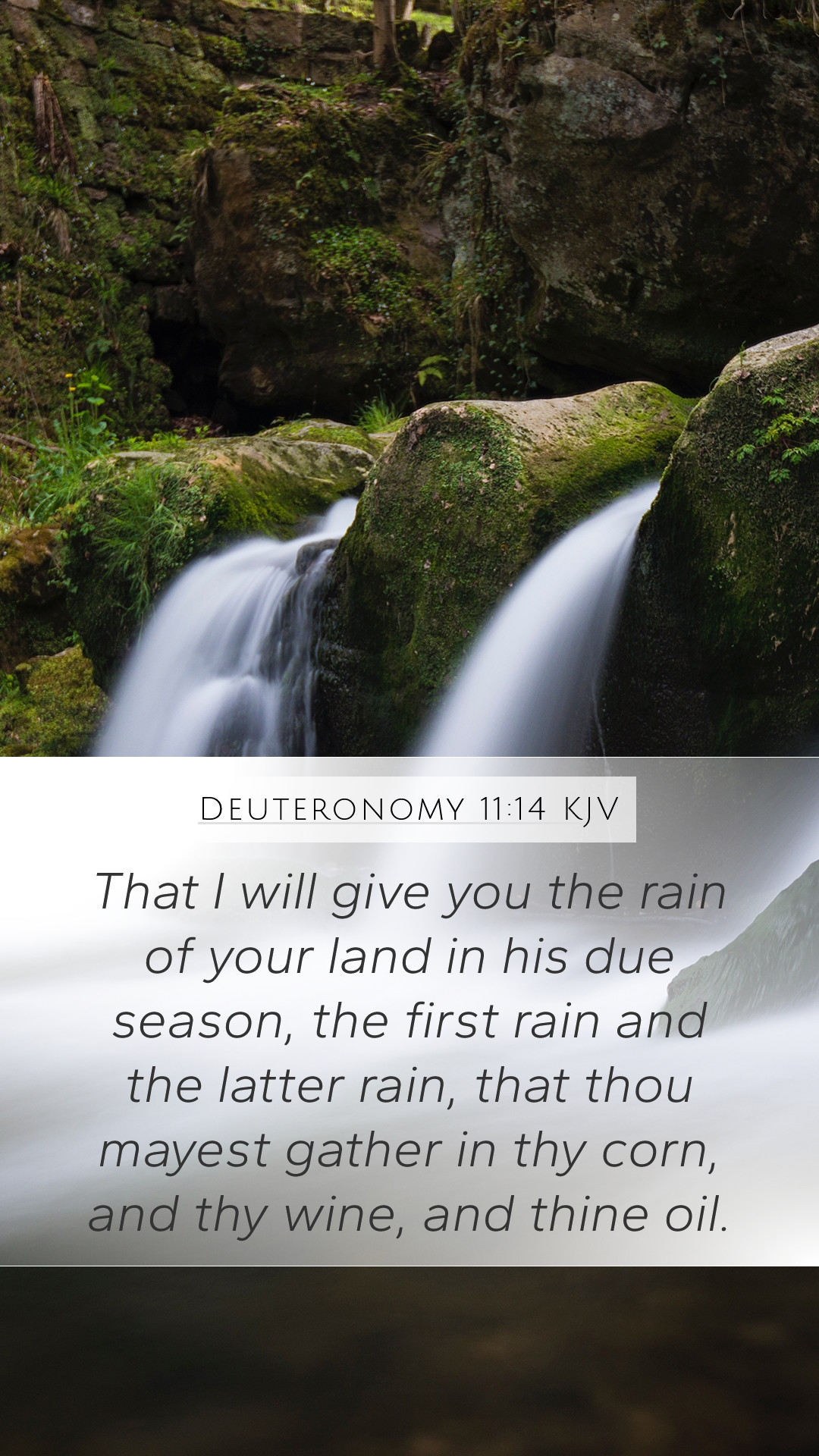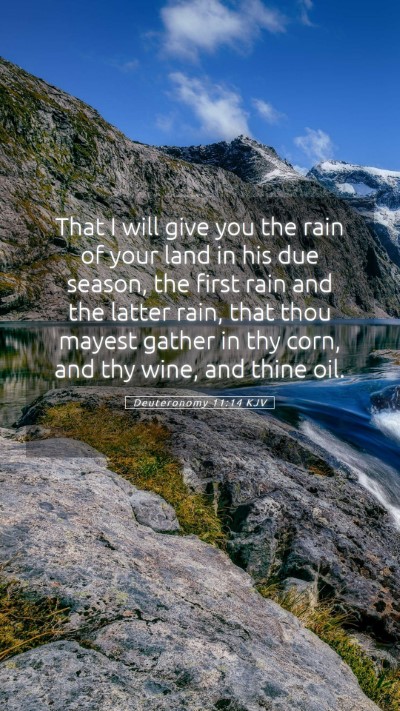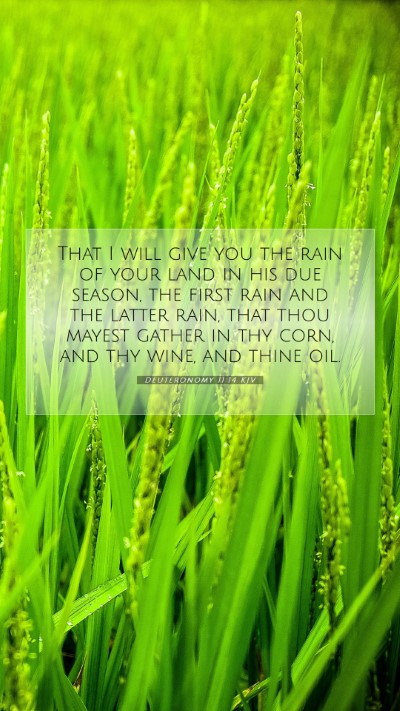Understanding Deuteronomy 11:14
Deuteronomy 11:14 states, "That I will give you the rain of your land in his due season, the first rain and the latter rain, that thou mayest gather in thy corn, and thy wine, and thine oil." This verse highlights the promise of God regarding agricultural blessings upon the people of Israel, contingent upon their obedience to His commandments.
This verse can be enriched with insights drawn from various public domain commentaries:
Bible Verse Meanings and Interpretations
The analysis of this verse runs deep, emphasizing the divine provision for the needs of the people. The focus is on God's role as the provider of both early (autumn) and latter (spring) rains, crucial for a successful harvest.
-
Matthew Henry:
Henry emphasizes the connection between obedience to God’s commands and receiving His blessings. He notes that the rain symbolizes the abundant provision that God promises, reflecting His faithfulness to those who follow Him.
-
Albert Barnes:
Barnes points out the agricultural significance of these rains in the context of Israel’s economy, implying that God’s blessings are intertwined with their relationship with Him. He notes that the fulfillment of this promise would be a direct response to their faithfulness.
-
Adam Clarke:
Clarke elaborates on the importance of recognizing God’s hand in natural processes and the dependence of the Israelites on divine favor for their sustenance. He articulates that the rains are not merely natural phenomena but rather divine blessings that ensure prosperity.
Bible Study Insights
This verse offers rich fodder for biblical exegesis and discussion in Bible study groups. It invites individuals to contemplate how divine providence operates in their lives today. Here are some insights based on the commentaries:
- Divine Blessing and Obedience: The notion that blessings are contingent upon obedience underlines the principle that God desires a relationship characterized by fidelity and devotion.
- God's Faithfulness: This verse illustrates a deeper theological truth about God's constancy. His promises reflect His overarching plan for His people throughout generations.
- Symbolism of Rain: Rain serves as a metaphor for spiritual sustenance. Just as physical nourishment is provided through rain, so too is spiritual life nourished through the will of God.
Application of This Verse to Daily Life
For individuals studying the Bible or seeking understanding of Scripture, reflecting on Deuteronomy 11:14 becomes an exercise in recognizing how reliance on God should translate into all aspects of life—spiritual and material. Applications may include:
- Prioritizing spiritual growth through prayer and obedience.
- Trusting God for provision during challenging times.
- Engaging in communal worship and study to deepen understanding of God's promises.
Historical Context of Deuteronomy 11:14
Understanding the historical context of this verse is crucial for a more profound comprehension. It stems from Moses’ address to the Israelites as they prepared to enter the Promised Land, with reminders of their covenant with God.
Cross References
Several Bible verses relate to the themes presented in Deuteronomy 11:14, including:
- Leviticus 26:4: "Then I will give you rain in due season, and the land shall yield her increase..."
- James 5:7: "Be patient therefore, brethren, unto the coming of the Lord. Behold, the husbandman waiteth for the precious fruit of the earth..."
- Psalm 65:9-10: "Thou visitest the earth, and waterest it: thou greatly enrichest it..."
In-Depth Bible Verse Analysis
This verse serves as a reminder that God’s provisions are often tied to our obedience. For those seeking Bible verse explanations or how to interpret Bible verses, Deuteronomy 11:14 illustrates the covenantal relationship that is both a privilege and a responsibility. It encourages reflection on how historical scripture applies to current life situations and the importance of aligning personal conduct with God’s commandments to experience His blessings.
Conclusion
In summary, Deuteronomy 11:14 encapsulates profound theological themes about God’s provision, the significance of obedience, and the cyclical nature of blessings tied to faithful living. As individuals ponder the meaning of this Bible verse, they are invited into a deeper relationship with God, acknowledging both their need for His sustaining grace and the assurance of His faithfulness in their lives.


